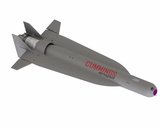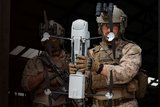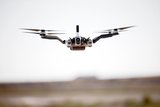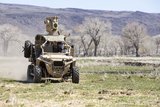Zephyr 7 HAPS flies for 11 days non-stop
The Zephyr 7 High Altitude Pseudo-Satellite (HAPS) has reached a number of new programme milestones, completing an 11 day non-stop flight in winter weather conditions with a new primary payload, as part of tests for the UK Ministry of Defence (MoD). Airbus Defence and Space made the announcement on 28 August.
The test also saw Zephyr 7’s flight controlled and monitored via satellite communications (SATCOM) for the first time.
Zephyr 7 HAPS runs exclusively on solar power, which is used during the day to charge a battery that is used to power the flight through the night. This flight, conducted in the Southern Hemisphere in winter conditions with shorter days and longer nights, was significantly more demanding than any previous test flight.
The programme also reached an important milestone in its regulatory roadmap. The flight was approved in controlled airspace, which required the close cooperation of the Military Aviation Authority (MAA), the Type Airworthiness Authority (TAA) and the Unmanned Aerial Systems (UAS) team of the MoD Defence Equipment and Support Group, leading to the Zephyr 7 being assigned its military registration, PS001 – the first Pseudo-Satellite registered.
Group Captain Paul Lloyd of the TAA said: ‘This is the first time that the UK’s military aviation authorities have expanded our well-proven procedures and regulations into the domain of these novel, long-duration pseudo-satellites. It has been both instructive and encouraging to see how effectively the regulations and the Airbus approach to Zephyr were brought together to enable such an operation.’
Jens Federhen, head of the Airbus D&S HAPS programme, added: ‘The use of the SatCom link to control the aircraft beyond line of sight of the ground station is another critical aspect that we needed to test to move towards a pseudo-satellite form of operation where the Zephyrs can be controlled across the world from a central control station.’
This most recent flight allowed over 250 hours of flight testing of the Zephyr 7 prototype, which will now be used to refine the final design of Zephyr 8, the next-generation HAPS vehicle currently being developed by Airbus D&S.
More from Uncrewed Vehicles
-
![Cummings Aerospace showcases Hellhound loitering munition designed for US Army’s LASSO programme (video)]()
Cummings Aerospace showcases Hellhound loitering munition designed for US Army’s LASSO programme (video)
Cummings Aerospace presented its turbojet-powered Hellhound loitering munition at SOF Week 2025, offering a man-portable solution aligned with the US Army’s LASSO requirements.
-
![SOF Week 2025: PDW unveils attritable FPV drone for SOF operations at scale]()
SOF Week 2025: PDW unveils attritable FPV drone for SOF operations at scale
PDW has revealed its Attritable Multirotor First Person View drone at SOF Week 2025, offering special operations forces a low-cost, rapidly deployable platform for strike and ISR missions, inspired by battlefield lessons from Ukraine.
-
![SOF Week 2025: Teledyne FLIR white paper provides guidance on reusable loitering munitions]()
SOF Week 2025: Teledyne FLIR white paper provides guidance on reusable loitering munitions
Teledyne FLIR is highlighting the emerging requirements for 'recoverable and re-usable' loitering munitions across the contemporary operating environment during this week’s SOF Week conference in Tampa, Florida.
-
![SOF Week 2025: Kraken Technology group debuts K3 Scout USV in North America]()
SOF Week 2025: Kraken Technology group debuts K3 Scout USV in North America
High-performance maritime industry player Kraken Technology Group, based in the UK, has used the SOF Week conference in Tampa, Florida this week to debut its K3 Scout uncrewed surface vessel (USV) to the North American market.
-
![Palladyne AI and Red Cat to demonstrate capabilities for autonomous drone swarms to the US military]()
Palladyne AI and Red Cat to demonstrate capabilities for autonomous drone swarms to the US military
Red Cat and Palladyne AI recently conducted a cross-platform collaborative flight involving three diverse heterogeneous drones.
-
Jammer resistant drone designs spark search for countermeasures
The Russia-Ukraine conflict has driven another stage of evolution for drones and the counter measures to defend against them.

























